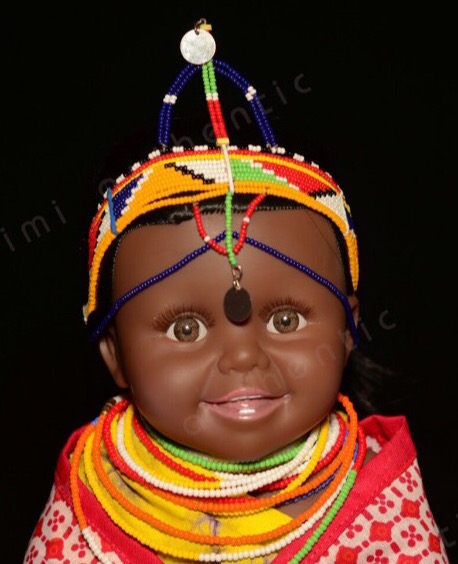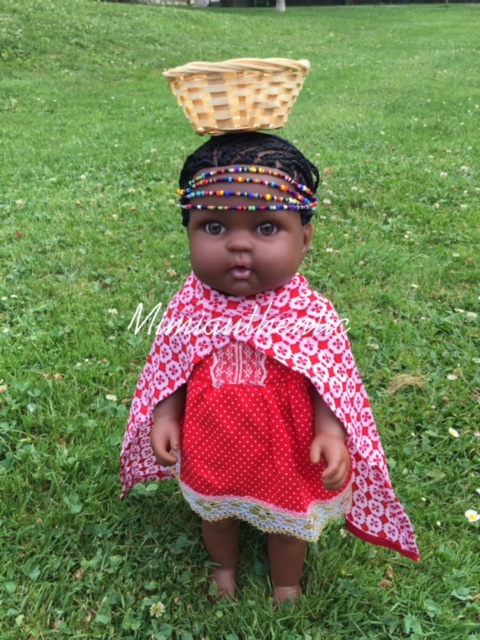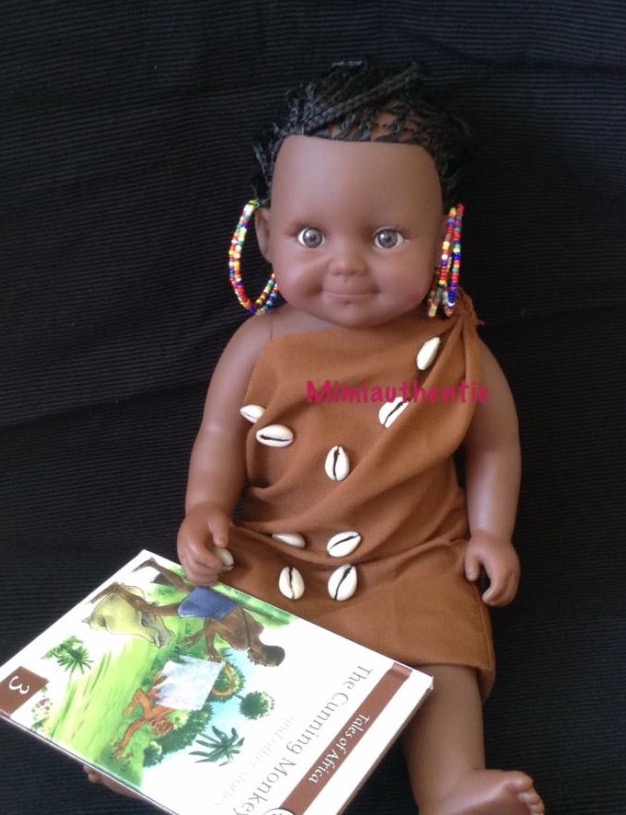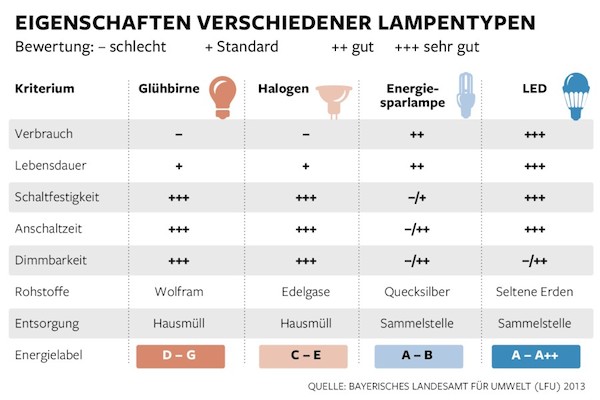Nancy Schürch, a Kenyan mom of three based in Switzerland, is slowly changing the perception of the sleek blue eyed Barbie as the only doll for little girls by introducing an alternative, ‘Mimi’.
Her daughter’s lover for a specific Barbie doll, pulled Nancy to rethink the whole concept about dolls. Nancy says with laughter in her throat that her daughter dotted over the doll and named it ‘Mimi’. However, this Barbie doll, looked nothing like her daughter, she explains.
After watching her daughter play with the doll, an idea was born. Nancy wanted a doll that would reflect her daughter’s interracial looks. Thus, ‘Mimi’ was born.
The word ‘Mimi’ is derived from Swahili, which defines self as an expression of identity. Nancy’s self-designed African authentic cultural dolls, aim to help young girls appreciate their cultural background and their own looks.

Through the dolls, Nancy tries to explore different authentic Kenyan cultures and traditions, thereby fostering a positive learning experience and identity to young girls. She says the knowledge carried in the narrative behind each ‘Mimi’ encourages a personal reflection, while connecting with traditional roots.
Nancy has currently four ‘Mimi authentic cultural dolls’: the Maasai, Kalenjin, Kikuyu and Malaika Mimi’s. Of the four, the three carry a symbolic identity of a rich Kenyan culture, in the manner of dress, embroidery and hair. She has narrowed to these three for their vast cultural ascriptions.
The dolls are packaged with a short story of their specific cultural representation, the region where the people the doll represents is located, the food, and cultural activities. Additionally, the story includes what little girls from the community do as part of play and roles assigned to them in the family and community.
The fourth is the Malaika Mimi, this one has special relevance to children living with HIV. It was created to help break stigma associated with HIV and Aids, especially among children infected and living in the slums of Nairobi. She says.

The story behind ‘Malaika Mimi’ is that of a child infected with the HIV at birth, but determined to have a normal life. This child has ambitions to go to school, get an education and make it in life, despite living with the virus. Nancy narrates.
She hopes that the story can bring psycho-social healing and help the community understand that it is never the fault of a child to be born with the virus, neither does the status make him or her different from the other children.
Notable of her creations inspired by her children is Mimi Nasimae, representing an industrious Maasai girl. The features of her 9-year-old first born daughter Jewel, are encapsulated in the miniature doll with a round chubby face, and chocolate brown colour texture.
The face of Mimi Muthaka depicting a Kikuyu girl, capture features of her second born Lilly aged 6 years. Lilly, who she says is very shy and doesn’t like to show her teeth, also inspired the actual name of the dolls ”mimi’.
Her 3-year-old son Noah was not left out, the ever happy and smiley toddler inspired the face of Mimi Malaika, a doll representing a child living with HIV. Nancy says nothing can kill Noah’s spirits, so goes the fighting spirit of such children.
After satisfactory descriptions by her children, Nancy sketches the dolls and sends the work to her production contractor in Quan Xu China, where the dolls are moulded and essentialzed. It takes about 2 months to produce 1000 dolls. Nancy says.
Once the dolls are ready, they are sent to Nairobi for hairdo, dressing and accessory. They are then packaged with an authentic story and certificate ready for the market.

The embroidery beads are done by Samburu women working for the Girl Child Foundation Programme and transported to Nairobi. The money for the work is paid to the programme. In Nairobi, Nancy works with her childhood friend, a tailor in Muthurwa who makes the outfits. She uses an apartment that formerly belonged to her sister in Githurai 44, where the dolls are dressed and packaged.
It has been two years since her first creation was unveiled and it has not been without challenges. The main one being a lack of understanding of the cultural narrative behind the dolls, as most clients especially in Kenya, see dolls as a play thing and will not take them seriously.
Additionally, most families cannot afford the dolls which are valued at 58 US dollars (52 Euros) or 2900 Ksh per piece, making them accessible to very few clients.
In Switzerland, some clients request for the dolls to be specifically customized, with an alternative hairdo, dressing, or face. However, Nancy hopes to break this barrier by integrating different cultures and stories, especially from West Africa.
She also hopes that kids growing up in Europe with African roots, can get to learn some aspects of their cultural heritage. It is also a way for the children to share with their friends and enhance cultural diversity and appreciation.
So far, her dolls are available in Kenya, Switzerland and the United States of America with 10% of the proceeds from the sale of the dolls going to charity.
The mother of three says the chain of production has helped her create employment for a few young people in Nairobi and women in Samburu.
With two years under her belt, the young entrepreneur has a few business tips:
- Any idea is worthwhile; it all starts by putting it down
- Formulate a plan to put the idea to action
- Budget for the business, it may require sacrificing your time, and life savings
- Maintain a strict budget,
- Get mentors.
 She says she is lucky to have a supportive husband, who was initially concerned about the time spent on the business and how it would affect the family but encouraged her on. Her aspiration is to heal the community through stories behind mimi authentic dolls.
She says she is lucky to have a supportive husband, who was initially concerned about the time spent on the business and how it would affect the family but encouraged her on. Her aspiration is to heal the community through stories behind mimi authentic dolls.
Born in Meru, Nancy grew up in Muthurwa. With a father who worked with the Kenya Railways and a mother in business, Nancy is not new to different environments and cultures. She got married in 2010 to her Swiss husband and accompanied him to Nigeria and Cambodia, where he worked, before the family finally returned to Switzerland in 2014.










